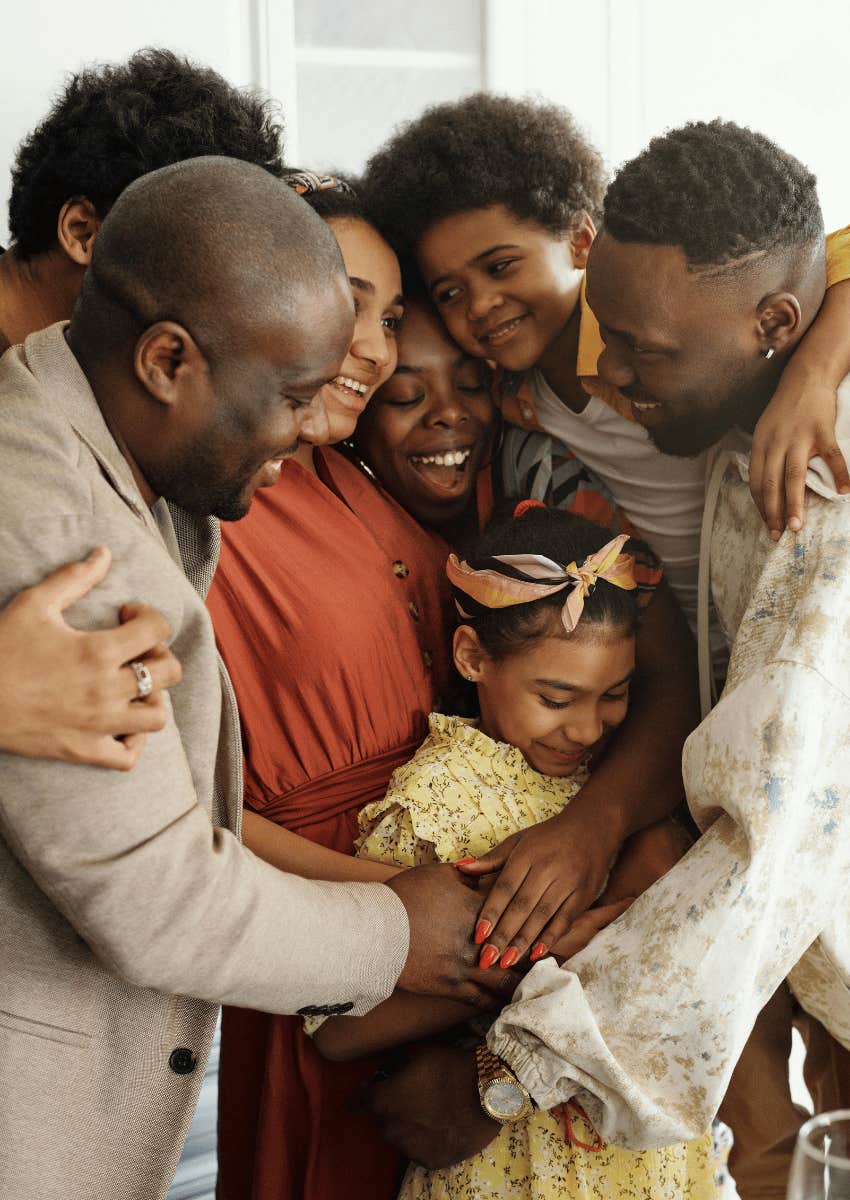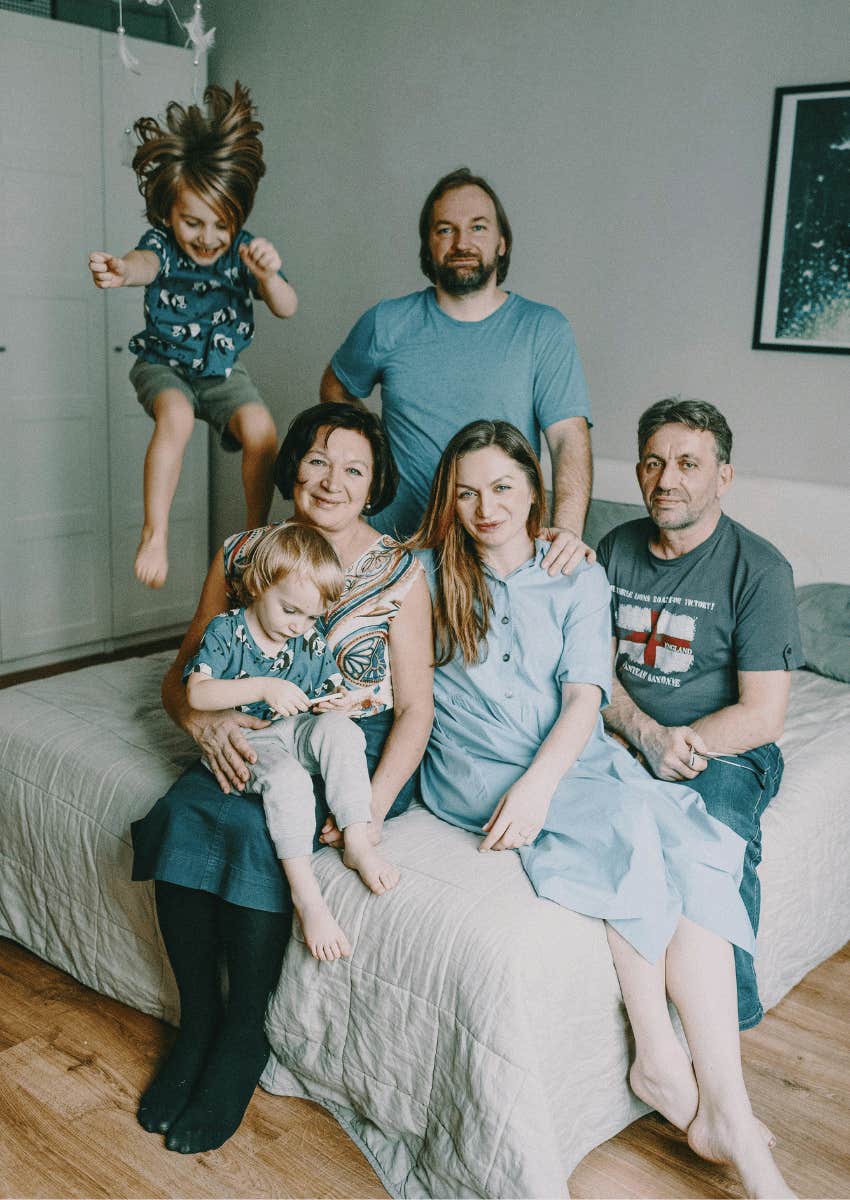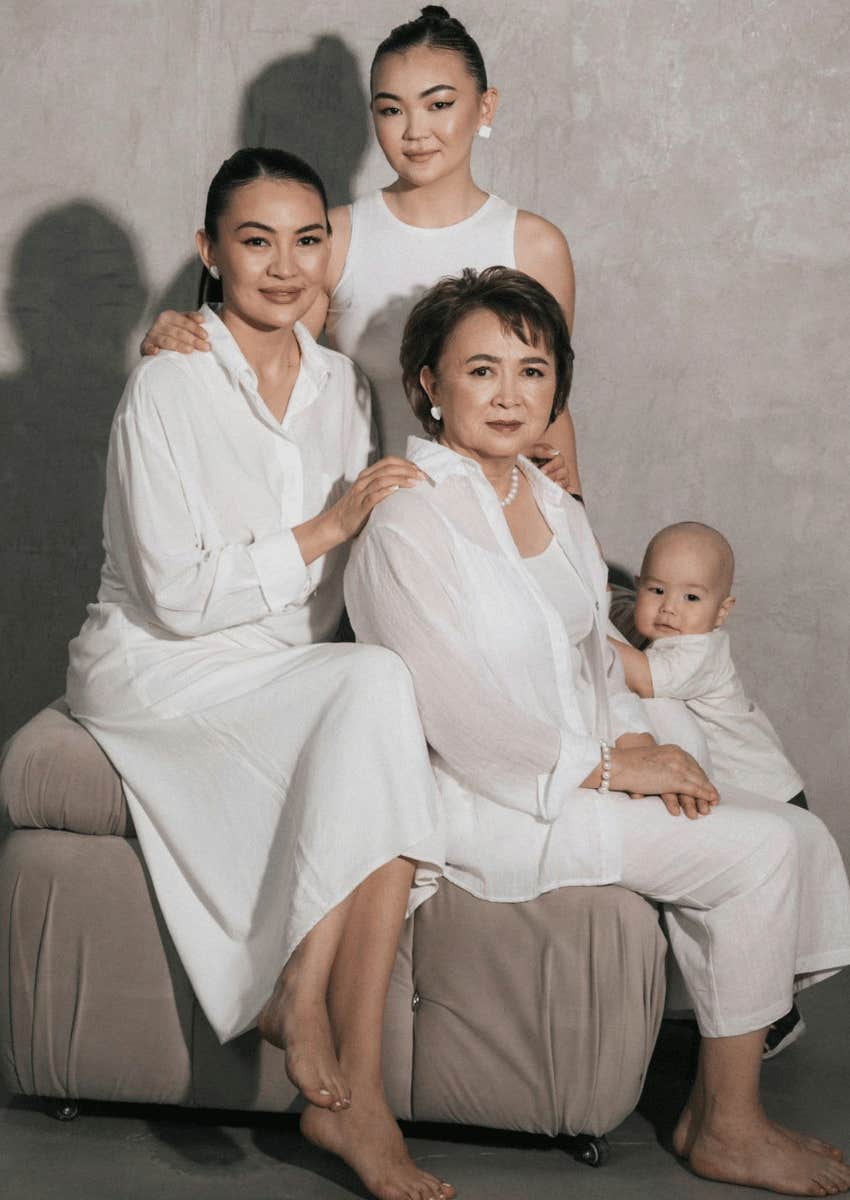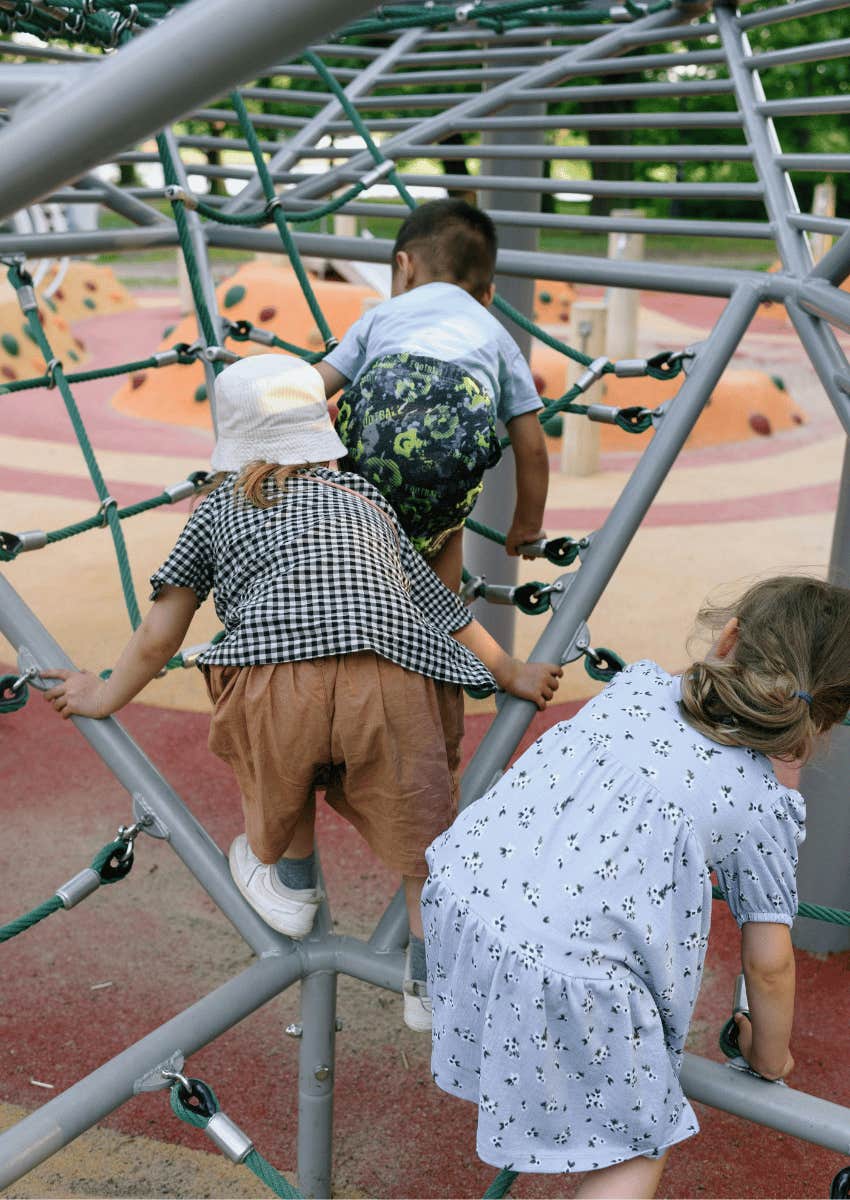We’re All Better Off With Children In Our Lives, Even If You Choose Not To Have Them Yourself
On the decline of multigenerational gathering spaces.
 Peopleimages.com - YuriArcurs | Canva
Peopleimages.com - YuriArcurs | Canva Confession: I’m not really what you’d call a “kid person.”
I don’t actively dislike children, but I have my limits. As the oldest cousin on both sides of my family, I engaged with the younger kids at Thanksgiving and other family gatherings for a requisite period, then sneak off to a corner to disappear into my book.
My sister was the one whom our younger cousins worshiped. They followed her around like the Pied Piper, pulling and tugging at her, shrieking and giggling.
It’s fitting that she followed in our parents' footsteps and became a teacher. My entire family has made a living from engaging with children—except for me, the Black Sheep, who has always worked in an office. It’s also somewhat ironic that I’m the one with kids of my own while my sister is child-free.
I’ve written a lot about the needless stresses of modern motherhood. But at the end of the day, I’m also hugely grateful to have children in my life.
They make me laugh, often at unexpected times. They permit me to be silly. They lure out my curiosity, invigorate my creativity. They dive headfirst into their emotions — for every tear, there is also a moment of unfettered joy .
They push me to grow. Their questions motivate me to think more deeply about what I accept as truth. Their vivid imaginations inspire my sense of play.
I still have my limits with children. I still often yearn to sneak off and disappear into a book. But if I didn’t have my own children, I often wonder whether I’d interact with children much at all. And while a child-free existence sounds peaceful, to be sure, the thought of it also makes me sad.
In our increasingly segmented society, we relegate our elders to nursing homes and our children to playgrounds and Chuck E. Cheese. Our downtowns and strip malls are built around consumption and work, primarily for adults.
 August de Richelieu | Pexels
August de Richelieu | Pexels
Our homes and residential streets are no longer the multigenerational gathering places they once were.
I distinctly remember how limited the world suddenly felt when I first navigated it with a baby in tow. I had to change my jogging route because the stroller I now toted demanded accessible sidewalks. I could no longer sit in my favorite coffee shop and watch the world go by because its restroom lacked a changing table — and besides, people were trying to work.
As one of the first people in my friend circle to have a child (at the tender age of 31), my child-free friends still spontaneously invited me “out,” but never to places where a baby or small child would be welcome. Never was enough notice given for me to coordinate childcare. Eventually, they stopped calling.
When I returned to work, I felt like I was living a double life. My professional self had to hide all evidence of children — no spit-up stains, no leaking milk, no pacifiers in my pocket. After the initial oohs and aahs, when I shared a few select baby photos with my coworkers, no one really wanted to hear much about her or even acknowledge that my entire life outside the confines of the office had changed.
Then there was my personal self, though my boundaries of “self” had suddenly become as fluid as the bodily substances that frequently spilled onto and out of me. Our condo was filled with soft and squishy things — nothing even remotely resembled the clean lines and corners of the office.
 Ksenia Chernaya | Pexels
Ksenia Chernaya | Pexels
Out in public, strangers always smiled, but for every smile, there was also a wary look.
In trains, planes, coffee shops, and restaurants. It was as though by leaving my home, where I belonged, and attempting to navigate the world with a baby or child, I was infringing upon “adult spaces,” disturbing the peace.
Things got easier as my first and second babies got older. There was less gear, fewer tantrums, and no nap schedule to work around. But I still felt relegated to the “kid spaces” whenever I ventured out into the world with my children, doomed to exchange small talk with parents I would never meet again on the sidelines of the designated play areas.
I even suffered through the cesspool of snot and the cacophony of shrieks, songs, and blinking lights, which is Chuck E. Cheese. Twice. It’s a sensory-sensitive bookworm’s worst nightmare, but where else can a kid have a birthday party in January?
Children are still… well, children. Sometimes, it’s hard for them to sit still and be quiet. Sometimes, they aren’t stimulated by blank sidewalks and sleek indoor spaces. Sometimes, it’s excruciating for them to be the only children amidst the tedium of adults sitting around and chatting.
Beyond schools and designated play areas, we largely expect children to navigate a world built for adults.
It’s a boring world — void of the rich sensory play opportunities freely available in nature. It’s filled with things they can’t reach and other things they aren’t supposed to touch. It’s a world where adults constantly tell them to sit still and be quiet. Even the chairs we ask them to sit still in are not designed to accommodate their short legs and torsos.
Parents traverse this world with small children by necessity, but rarely for fun. It is almost always regretted if “fun” with children is attempted in adult spaces. Fun is saved for the kid spaces, where the high concentration of children can be too much, even for the kids themselves.
There is too much noise, too many elbows, unexplained stickiness, and unsavory smells. Adults rarely have “fun” in these spaces, which often lack coffee and almost never serve beer.
 21zere | Pexels
21zere | Pexels
On the rare occasions when I’ve been in spaces that are child and adult friendly, I catch a glimpse of what the world could be like if more spaces were mixed-use, more gatherings multigenerational.
The extent to which our modern spaces segregate children and adults is highly unnatural. For most of human history, we’ve lived in communal spaces where children were constantly underfoot, and all adults kept an eye on them, whether or not the children were theirs. Even today, in an Indigenous Kraho village in Brazil:
“Children use the word ‘inxe’ for both their biological mother and their mother’s sisters or the women their mother considers as sisters, even if they’re not related by blood. There is no word for aunt. To the children, they are all mothers.”
This starkly contrasts the “your child, your problem” mentality that dominates our cultural landscape today. If you don’t have children of your own and don’t meaningfully engage with kids in an ongoing work or social context, children remain largely “over there.” And unless their parents have gotten it together to find, organize, and pay for a babysitter, they, too, remain “over there.”
What would the world look like if none of us were “over there?” Were our neighborhoods and public spaces designed with kids and adults in mind? If we all converged to socialize and play? If we had more streets closed to cars, Hopscotch and Twister painted on downtown sidewalks, swings from front yard trees, tire swings in office lobbies, and jungle gyms at every airport gate?
By the same token, how can we build on “kid spaces” to better accommodate adults? What if all playgrounds didn’t just offer benches ringing the sidelines but also integrated gathering spaces and seating areas, complete with food trucks, coffee carts, and heck, maybe even some live music now and then?
 Ksenia Chernaya | Pexels
Ksenia Chernaya | Pexels
When humans live “in nature,” we don’t have to be intentional about design because nature engages all of us without even trying.
That’s why parks, beaches, and campsites offer some of the most effortless opportunities for mixed-age gatherings. On a camping trip a few years ago, we happened to run into two families whose children attended my son’s preschool. We all roamed the meadow together, went hiking, and shared food. The adults sat and talked while the kids ran barefoot around the campsite.
My daughter, the eldest of the newly formed clan, directed and starred in a play. The play was widely attended by other campers of all ages, parents and childfree adults alike. Everyone laughed, hollered, and clapped. The joy was abundant, the energy infectious. I thought: “Why don’t we just live like this?”
Humans did once. Some still do. But most of us have boxed ourselves into concrete cities, built lives around consumption, and retreated into homes and behind screens. Along the way, our children have lost the ability to “run underfoot.” No children are readily available to run with or groups of feet to run under.
It sucks for the kids, but it sucks for adults, too. While I fully support anyone who doesn’t want children of their own, “childfree” doesn’t have to mean living an existence largely free of children. What a loss—to be cut off from their breathless energy, glinting eyes, flushed cheeks, and earnest inquiries. What a missed opportunity to learn, teach, and grow.
Parenting, by the same token, doesn’t have to mean living an existence of shuttling our children from one kid's space to another. I should be able to share my children with other “inxe,” to navigate public spaces designed for kids and adults, to occasionally speak in complete sentences while my children run underfoot.
Take it from someone who isn’t even a “kid person”—we’re all better off with children in our lives.
Kerala Taylor is an award-winning writer and co-owner of a worker-owned marketing agency. Her weekly stories are dedicated to interrupting notions of what it means to be a mother, woman, worker, and wife. She writes on Medium and has recently launched a Substack publication Mom, Interrupted.

